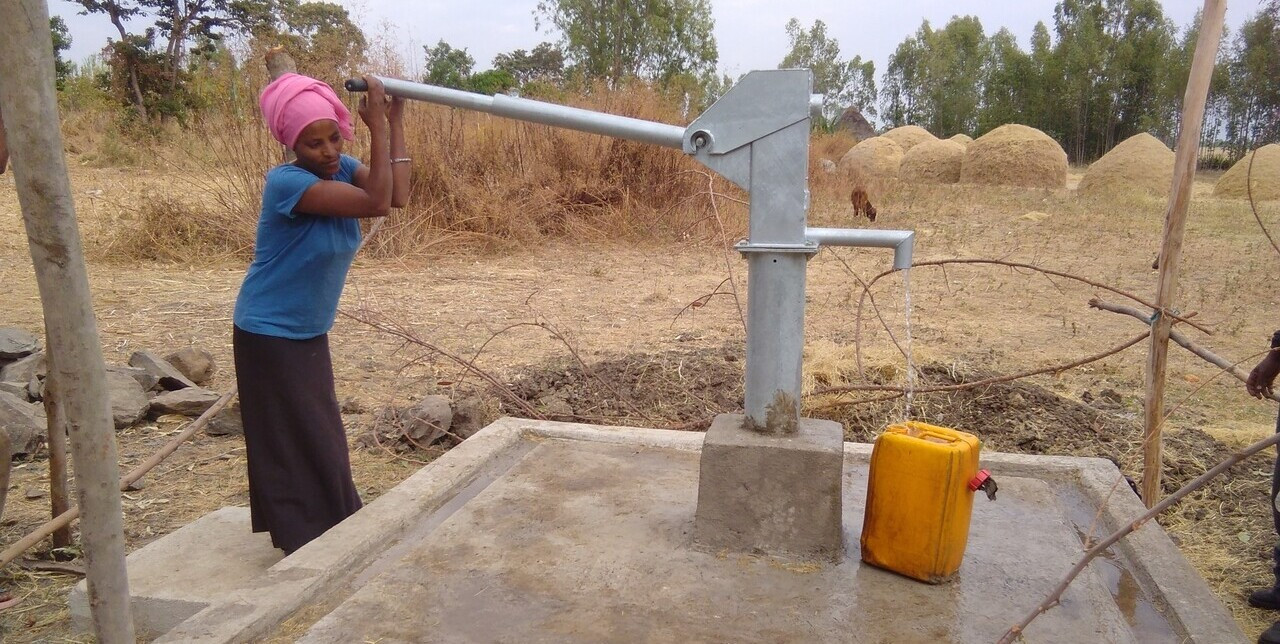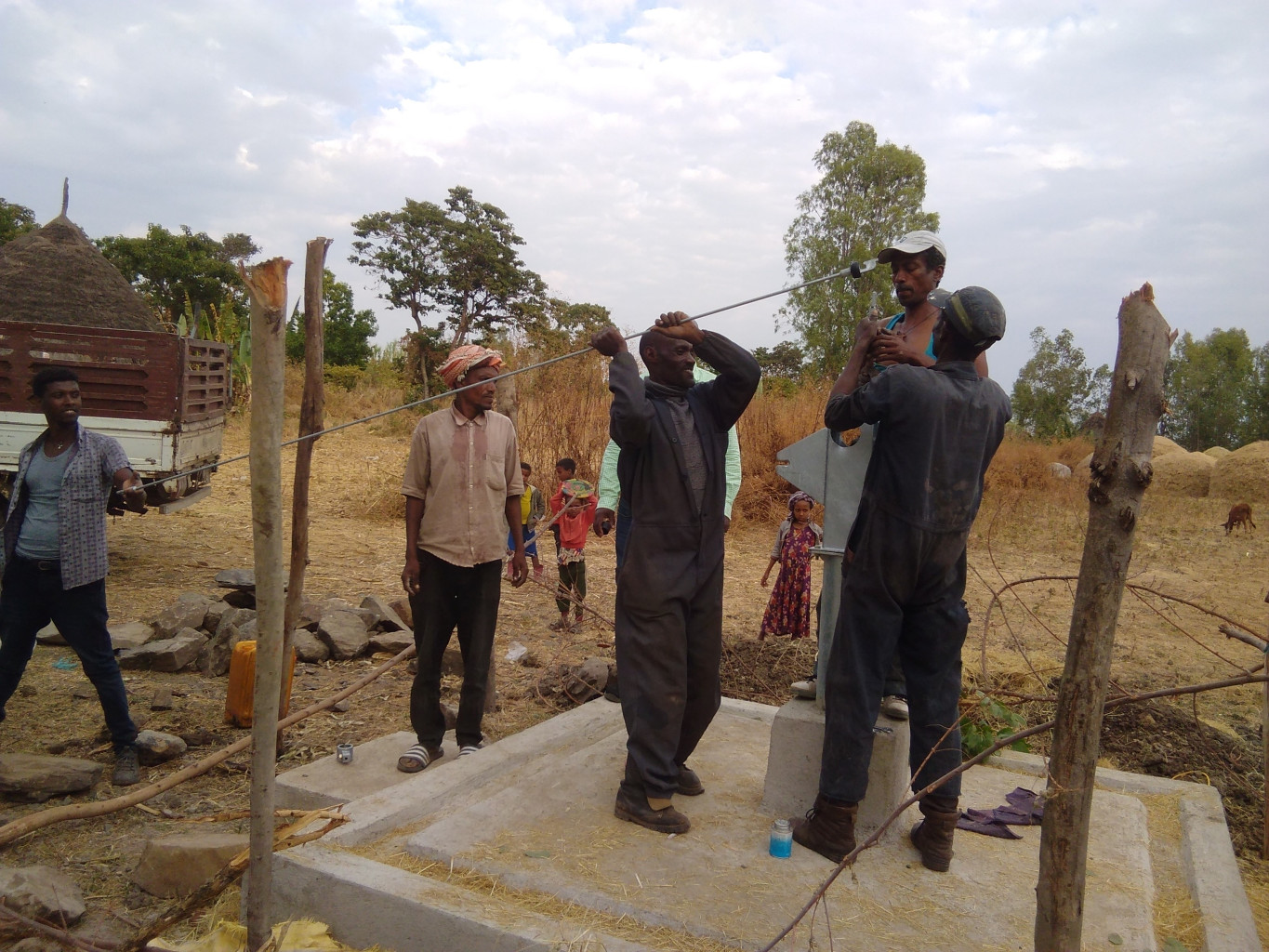31-07-2024 | di COOPI
Ethiopia. Water schemes and sanitation improvements in South West Shewa Zone
With water and sanitation coverage well below the national average, the three Ethiopian districts of Wonchi, Goro and Kersa Malima, in Oromia Region, located south-west to Addis Ababa, have benefitted from the assistance provided by the field team of COOPI – Cooperazione Internazionale with a view to improve water access and hygiene. Since 2022, COOPI has implemented a 2-and-a-half-year project titled “Support for the construction and management of 20 rural water schemes, hygiene and sanitation sensitizations, in South West Shewa Zone, Oromia Region” with funding of the Italian Agency for Development Cooperation (AICS).
The initial assessment highlighted the severity of the water and sanitation crisis in the region: Kersa Malima lacked any sanitation facilities, leaving residents without basic hygiene infrastructure. In Goro, water access was only 48%, with sanitation coverage at 28% and many water systems broken. Wonchi, similarly, had very limited water access and only 10% of sanitation facilities. Even in areas where water was available, its quality often failed to meet safety standards due to high levels of fluoride and other contaminants, common in this volcanic region.
Thanks to COOPI’s efforts, over 40,000 people now have direct access to improved water and sanitation facilities, and the project is expected to indirectly reach another 300,000 people. The initiative is a key component of COOPI’s strategy for Water, Sanitation, and Hygiene and rural development in the region, significantly enhancing the overall well-being of communities in these underserved areas.
Despite the challenges occurred, primarily the weather conditions and the security situation, 10 new shallow wells have been drilled in Goro, while in Wonchi, 4 new water points and a solar-powered pump have been established. These constructions have drastically reduced the distance residents need to travel for water - from an average of 5 kilometres to just 0.5 kilometres - making water access more convenient and reducing the physical burden on families. As a result, water coverage has increased by 14% in Wonchi and 6% in Goro. Improved access to safe water has also lowered the risk of waterborne diseases and reduced medical expenses for families. Solar pumps are making the water supply more sustainable by eliminating the need for electric power.
Activities carried out as part of the project include hygiene and sanitation awareness campaigns, an essential component of the project, since the aim is to generate long-term behavioural changes alongside the technical intervention. Moreover, COOPI is providing training to local government teams and technicians, as part of its commitment towards building local capacity as a way to ensure that the communities will continue to benefit from the intervention long after the project is finalized.
COOPI remains focused on improving living standards by ensuring reliable access to clean water and promoting sustainable hygiene practices across the Oromia Region. We have been present in Ethiopia since 1995, providing development and humanitarian assistance with a multi-sectoral and integrated approach to the most vulnerable groups, such as internally displaced persons, who fled due to conflicts and/or natural phenomena.




 Ethiopia
Ethiopia
